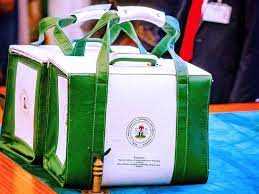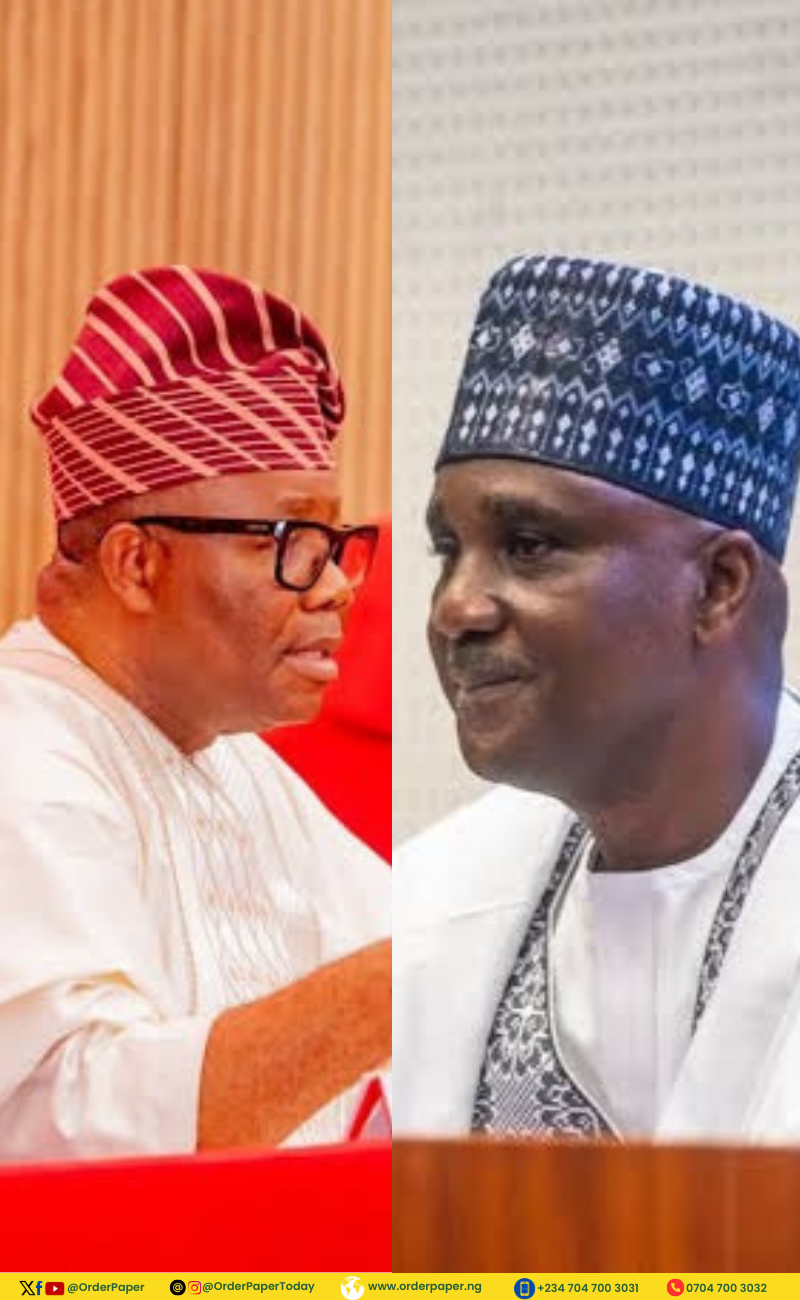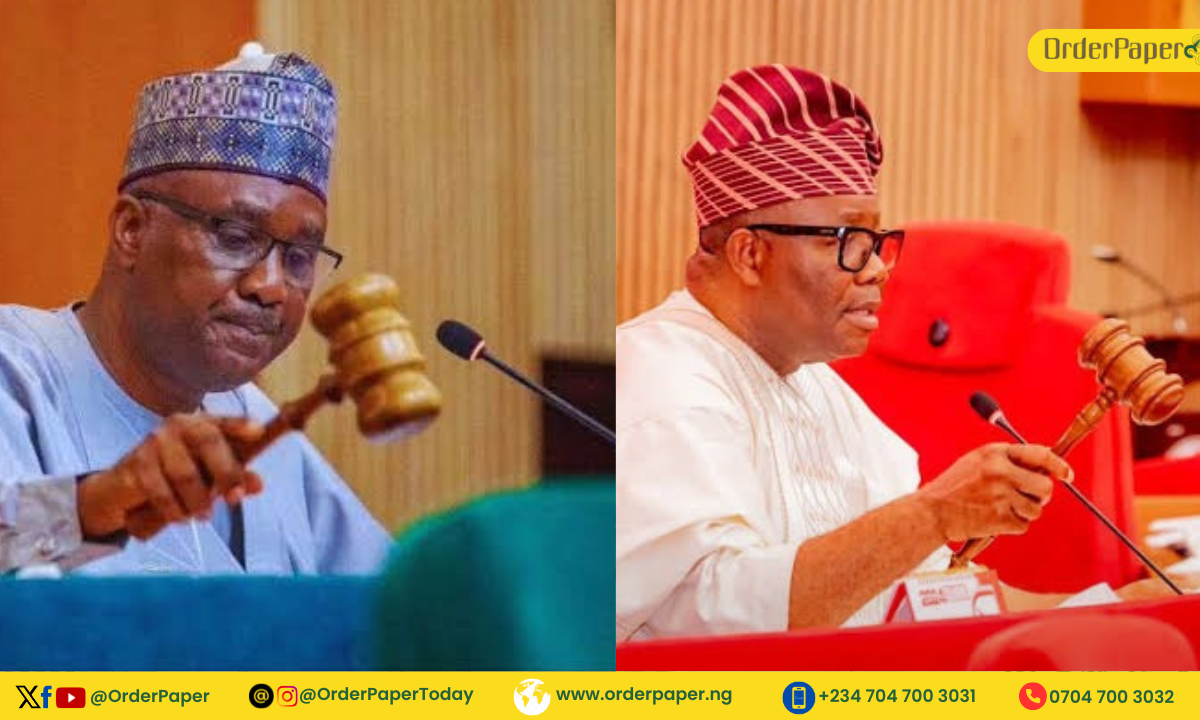As 2024 commences, the financial tension in the air is palpable. From the lingering effects of fuel subsidy removal, steady rise in inflation and prices of essential commodities, unabating corrupt practices, and poor public finance management, a lot is hinged on the successful implementation of the 2024 budget. To achieve this, the GIFT Project advocates effective citizen engagement, pragmatic parliamentary oversight, and urgent fiscal reforms to stir things in the right direction.

The ceremonies leading to the enactment of the 2024 Appropriation Bill into law to meet up with the January to December budget cycle have come and are winding down. This entailed the presentation of the Appropriation Bill, aka Budget of Renewed Hope, by President Bola Ahmed Tinubu before the National Assembly, the bill’s passage by both Chambers, and its eventual signing into law by the President.
EXPLAINER: The Budget: What it means and why it is important
As we set into the realities of budget implementation for 2024 amid numerous fiscal challenges, the Growth Initiatives for Fiscal Transparency (GIFT) Project becomes imperative, as a part of efforts to check corruption and instil prudence, transparency, and accountability in Nigeria’s public finance management. Are there hindrances to implementing the 2024 budget, what aspects of legislative duties must Parliamentarians uptake towards driving fiscal reforms, and what role do citizens play in fiscal transparency and accountability?
The Budget of Renewed Hope as signed into Law
The initial estimate of the budget presented by the President was ₦27. 5 trillion, broken down into a non-debt recurrent expenditure of ₦10.26 trillion and a statutory transfer of ₦1.30 trillion. At the same time, the debt service and sinking fund were set at ₦8.25 trillion and ₦243 billion, about 45 percent of the expected total revenue.
WATCH: Understanding the Budget of Renewed Hope in 90 Seconds
Following the two-week hearing on the 2023 budget implementation and 2024 budget defense by MDAs before respective committees of the Senate and House of Representatives, the final budget passed by the Parliament and signed by the President was pegged at ₦28.7 trillion. This is an increase of a little over ₦1.2 trillion. The reasons for this increase included the NASS allocation rising by 74.23 percent from the proposed ₦197,93 billion to ₦344.85 billion, amongst others.
Overall, the ₦28.7 trillion was then broken into a capital expenditure of ₦10 trillion, statutory transfers of ₦1.7 trillion, recurrent expenditure of ₦8.8 trillion, and debt service put at ₦8.2 trillion.
Budget Funding and Nigeria’s Fiscal Gaps
To fund the budget, the government expects to raise money through internal revenue generation as remitted by Ministries, Departments, and Agencies (MDAs) and crude oil sales.
Again, considering current realities and trends, the continuous failure of MDAs in remitting revenue into the Consolidated Revenue Fund (CRF) means that the feasibility of raising the proposed sum remains to be determined. This can be closely linked to the bottlenecks faced by the Fiscal Responsibility Commission (FRC) in ensuring appropriate and timely remittance to the government purse. These bottlenecks are primarily due to a lack of powers for the Commission to enforce the Fiscal Responsibility Act (FRA), 2007.
Additionally, the current tax system vis-a-vis the revenue assumptions needs to tally. This is considering the continued economic hardship, which has led to decreased economic activity, the closure of factories, and reduced consumption of commodities related to Value Added Tax (VAT).
On the other hand, assumptions in the 2024 budget on the price of crude oil in the international market pegged at $77.96 per barrel; production of 1.78 million barrels per day; and an exchange rate of ₦800 to $1 are problematic. Given the volatile nature of oil prices, drop in oil production, current forex fluctuation, asset vandalism, and recurrent cases of oil theft, realising these assumptions would prove challenging.
READ ALSO: ANALYSIS: Nigeria’s budget and bogus oil benchmarks
These existing and potential challenges then lead to the possibility of further borrowing, cumulating the need for a 2024 supplementary budget, bearing in mind that the 2024 budget projects a deficit of N9.18 trillion or 3.88 percent of GDP. This is above the 3 percent deficit threshold provided in the FRA. Also, not to forget that according to the Debt Management Office (DMO), Nigeria’s current external and domestic debt stood at N87. 38 trillion as of June 2023. In a nutshell, these fresh loans will severely hamper the government’s ability to pay off its present debts.
Another worrisome aspect of the budget is the borrowing plan in the Medium Term Expenditure Framework (MTEF) 2024-202026. Meanwhile, the FRA 2007 requires that a request for borrowing must indicate the potential sources of the debt, potential uses (allowed for capital expenditure), repayment plan, etc. However, the provisions of the FRA were flouted when the executive failed to provide these details for the $7.8 billion and €100 million loans, respectively, which the Senate approved in November for the 2023 supplementary budget.
The Way Forward
Indeed, a cursory look at some of the budget sums is enough to raise doubts amid current critical questions and concerns. This is considering precedence and Nigeria’s current poor fiscal health and downward trajectory. Fundamentally, Nigeria’s porous fiscal situation and observed gaps in the 2024 budget all point towards a central problem – lack of adherence to the provisions of the FRA, 2007.
This glaring shortfall speaks first to the need for urgent fiscal reforms, particularly the much-needed amendment to the FRA 2007. Such an amendment will give enforcement powers to the FRC to check corruption and instill prudence, transparency, and accountability in Nigeria’s public finance management. Secondly, to reduce corruption and improve service delivery by the government, standing committees of the National Assembly must rise up to the urgent imperative of formidable oversight. These are in line with the GIFT Project objectives.
About The GIFT Nigeria Project
The GIFT, which stands for Growth Initiatives for Fiscal Responsibility Project, is anchored on advocacy to amend the Fiscal Responsibility Act (FRA), 2007. The theory of change is that a significant reduction, if not the elimination of opacity, lack of transparency and accountability, and other forms of corruption through fiscal reforms and prudent use of public resources, including accountable debt management, will lead to efficient, effective, and functional service delivery at the national and sub-national levels.
READ ALSO: CSOs laud NASS’ resolve to amend fiscal responsibility law to check corruption
The GIFT Project is supported by the United States Agency for International Development (USAID) through the Strengthening Civic Advocacy and Local Engagement (SCALE) Project. OrderPaper leads a cluster of Civil Society Organisations (CSOs) in implementing this project. This project can provide some capacity-building support to relevant legislative committees toward realising much-needed fiscal reforms. Given the critical role of the legislature in overseeing public finances, support could be designed around best practices in public finance management, including debt sustainability, and empowering lawmakers to hold the executive arm accountable, thereby bolstering public trust in the legislature.
Last Words
It is important to note that the 10th Assembly, in some instances, has been tuned to the call for such fiscal reforms. The recommendation in the approved 2024-2026 Medium Term Expenditure Framework (MTEF) and Fiscal Strategy Paper (FSP) on the FRA is a case in point. The lawmakers stated that “the National Assembly begin the process of amending the FRA, 2007, to enhance the FRC’s ability to enforce fiscal responsibility and impose sanctions on erring corporations, specifically with regards to Sections 21 (1) and 22 (1) (2) of the F.R.A, 2007.”
Similarly, there were repeated calls by the Speaker of the House, Rep. Tajudeen Abbass, on the need for fiscal reforms. Additionally, the Presidential Committee On Fiscal Policy And Tax Reforms (PCFPTR) set up by the current administration has also taken up recommendations on the need for an FRA amendment, following calls from the public to make submissions on Fiscal Governance, Revenue Transformation, and Economic Growth Facilitation reforms, to which the GIFT Project responded.
Given these and the Project’s continued advocacy on prudent public finance management and fiscal reforms, the Project is particular that citizens being armed with the right information can also make demands from their representatives to take oversight and policy actions that can begin to engender prudent financial management and curb corruption in the country as the 2024 budget cycle commences.



